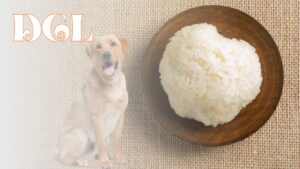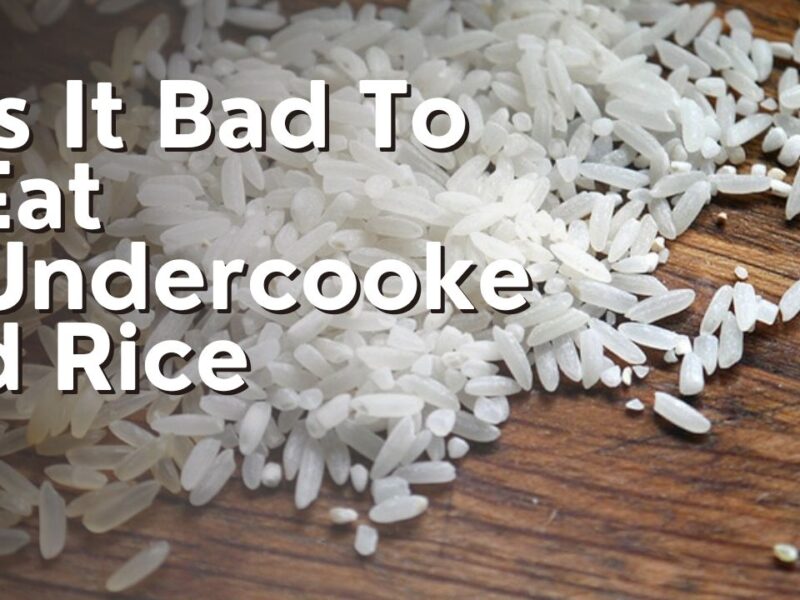Hey there! So, I’ve been wondering lately if jasmine rice is alright for dogs to eat. I mean, I love cooking and I often use jasmine rice in my own meals, but I’ve heard mixed opinions when it comes to our furry friends. That got me curious, you know?
After doing some research, I’ve decided to dive deeper into this topic and share what I found. In this article, we’ll explore the nutritional value of jasmine rice for dogs, potential risks and allergies, feeding guidelines and preparation, as well as the benefits it can bring to our beloved pets. And don’t worry, if you’re not sure about jasmine rice for your pup, I’ll also provide some alternative options.
So, let’s get started and find out if jasmine rice is really okay for our four-legged companions!
Nutritional Value of Jasmine Rice for Dogs
If you’re wondering whether jasmine rice is suitable for your furry friend, you’ll be pleased to know that it not only provides carbohydrates for energy but also contains essential vitamins and minerals that can contribute to your dog’s overall well-being.
Jasmine rice is a type of long-grain rice that is known for its fragrant aroma and slightly sticky texture. It is a popular choice for many Asian dishes, but it can also be a nutritious addition to your dog’s diet.
One of the main benefits of jasmine rice for dogs is its high carbohydrate content. Carbohydrates are an important source of energy for dogs, especially active ones. Jasmine rice can provide the necessary fuel to keep your dog energized throughout the day. Additionally, jasmine rice is low in fat, making it a suitable option for dogs that need to maintain a healthy weight.
In addition to carbohydrates, jasmine rice also contains essential vitamins and minerals that can support your dog’s overall health. It is a good source of B vitamins, such as thiamin and niacin, which play a crucial role in energy metabolism. Jasmine rice also contains minerals like iron, which is important for oxygen transport in the body, and magnesium, which is necessary for muscle and nerve function.
However, it’s important to note that jasmine rice should be cooked plain without any added seasonings or spices, as some ingredients can be harmful to dogs. It’s also recommended to consult with your veterinarian before introducing jasmine rice or any new food into your dog’s diet to ensure it aligns with their specific nutritional needs and any potential dietary restrictions they may have.

Potential Risks and Allergies
Be cautious when introducing new foods to your furry friend as some types of grains may pose potential risks and trigger allergies. While jasmine rice is generally considered safe for dogs, there are a few things to keep in mind.
Firstly, dogs with grain allergies may react negatively to jasmine rice. They may experience symptoms such as itching, digestive issues, or even anaphylaxis. If your dog has a known grain allergy, it’s best to consult with your veterinarian before adding jasmine rice to their diet.
Additionally, jasmine rice is a high-carbohydrate food. If your dog has certain health conditions, such as obesity or diabetes, a high-carb diet may not be suitable for them. It’s important to consider your dog’s specific nutritional needs and consult with your vet to determine the best diet for them.
Lastly, always cook jasmine rice thoroughly before feeding it to your dog. Raw or undercooked rice can be difficult for dogs to digest and may cause gastrointestinal upset.
In conclusion, while jasmine rice can be a safe and nutritious addition to your dog’s diet, it’s crucial to be aware of potential risks and allergies. Prioritize your dog’s health and consult with your veterinarian to ensure you’re making the best choices for their individual needs.
Feeding Guidelines and Preparation
When it comes to feeding my dog Jasmine rice, I have a few considerations.
First, I need to decide whether to serve it cooked or uncooked.
Then, I need to determine the appropriate serving size and frequency.
Lastly, I want to know if it’s safe to mix jasmine rice with other foods.
These key points will help me ensure that I am providing a balanced and nutritious diet for my furry friend.
Cooked vs. Uncooked Jasmine Rice
Cook up some delicious jasmine rice for your furry friend, but make sure it’s cooked before you serve it to them! Dogs can benefit from the nutrients found in cooked jasmine rice, such as carbohydrates and fiber. However, feeding them uncooked rice can be harmful as it is difficult for dogs to digest. Cooking the rice makes it easier for their bodies to process and absorb the nutrients. Plus, it softens the rice, making it more palatable for your pup. Remember to cool the rice before serving it to your dog to prevent any burns. To highlight the importance of cooking jasmine rice for dogs, here’s a table:
| Cooked Jasmine Rice | Uncooked Jasmine Rice |
|---|---|
| Easier to digest | Difficult to digest |
| Soft and palatable | Hard and unappetizing |
| Nutrients are available | Nutrients are harder to access |
Serving Size and Frequency
When serving jasmine rice to your furry friend, it’s important to consider their size, activity level, and overall diet. Start with a small amount and gradually increase it to avoid any digestive issues.
For small dogs, a quarter to half a cup of cooked jasmine rice per day is generally sufficient. Larger dogs may require up to a cup of cooked jasmine rice, depending on their needs.
Feeding jasmine rice to your dog should be done in moderation and as part of a balanced diet. It should not replace their regular dog food, as it lacks essential nutrients.
Remember to consult with your veterinarian to determine the appropriate serving size and frequency for your individual dog.
Mixing with Other Foods
To enhance your furry friend’s meal, try blending cooked jasmine rice with other nutritious ingredients for a wholesome and satisfying dish. Mixing jasmine rice with other foods can provide additional nutritional benefits and add variety to your dog’s diet. Here is a table that suggests some healthy and safe ingredients you can mix with jasmine rice:
| Ingredient | Benefits |
|---|---|
| Cooked chicken | High in protein |
| Steamed vegetables | Vitamins and fiber |
| Cooked eggs | Healthy fats |
| Pumpkin puree | Digestive support |
| Fish oil | Omega-3 fatty acids |
Remember to introduce new ingredients gradually and monitor your dog’s reaction. It’s important to consult with your veterinarian before making any changes to your dog’s diet. Mixing jasmine rice with other foods can provide a nutritious and delicious meal for your furry friend.
Benefits of Jasmine Rice for Dogs
Though not a staple in a dog’s diet, jasmine rice can provide dogs with essential nutrients and is easily digestible. There are several benefits of feeding jasmine rice to dogs.
First and foremost, it is a great source of carbohydrates, which are necessary for providing energy to our furry friends. Carbohydrates are especially important for active dogs or those who engage in regular physical activities.
Additionally, jasmine rice is low in fat, making it a healthy choice for dogs who need to watch their weight. It is also gluten-free, making it suitable for dogs with gluten sensitivities or allergies.
Another benefit of jasmine rice is its high fiber content. Fiber plays a crucial role in maintaining a healthy digestive system in dogs. It aids in proper digestion and can help alleviate constipation or diarrhea.
Moreover, jasmine rice is gentle on the stomach and easily digestible, making it a suitable option for dogs with sensitive stomachs or those recovering from an upset stomach.
In conclusion, while jasmine rice should not be the main component of a dog’s diet, it can provide several benefits when included in moderation. Its high carbohydrate content, low-fat content, gluten-free nature, and high fiber content make it a nutritious and easily digestible option for dogs. As always, it is important to consult with a veterinarian before making any significant changes to your dog’s diet.
Alternatives to Jasmine Rice
When it comes to finding alternatives to jasmine rice for dogs, there are several options to consider.
Other types of rice, such as brown rice or wild rice, can provide similar nutritional benefits.
Grain-free options, like sweet potatoes or quinoa, are also worth exploring.
It’s important to remember that every dog is different, so consulting with a veterinarian is always a good idea to ensure you’re making the best choice for your furry friend’s dietary needs.

Other Types of Rice
Although there are various types of rice, jasmine rice is a great option for dogs due to its fluffy texture and mild flavor. However, if you’re looking for other alternatives to jasmine rice, there are a few options you can consider.
One alternative is brown rice, which is a whole grain and contains more nutrients than white rice. It also provides additional fiber, which can be beneficial for dogs with digestive issues.
Another option is basmati rice, which has a slightly nutty flavor and a lower glycemic index compared to jasmine rice. This means it can help regulate blood sugar levels in dogs.
Lastly, you can also try wild rice, which is not actually rice but a type of grass seed. It has a chewy texture and is high in protein, making it a nutritious choice for dogs.
Grain-Free Options
For a healthier alternative, you can try grain-free options that will keep your furry friend satisfied and nourished. Instead of jasmine rice, which can have a high glycemic index and may not be suitable for all dogs, consider these grain-free options:
- Sweet potatoes: These are a great source of fiber and vitamins for your dog. They can be cooked and mashed or even given as dehydrated treats.
- Quinoa: This grain-free alternative is packed with protein and essential amino acids. Cooked quinoa can be mixed into your dog’s regular food or used as a base for homemade meals.
- Lentils: Rich in iron and fiber, lentils are a nutritious option for dogs. They can be cooked and mixed with other ingredients to create a balanced meal.
By incorporating these grain-free options into your dog’s diet, you can provide them with a variety of nutrients and help maintain their overall health.
Veterinary Recommendations
To ensure the best dietary choices for your furry companion, it is advisable to follow the recommendations of a veterinarian. Veterinarians generally agree that feeding your dog jasmine rice is safe and can be a healthy addition to their diet. Jasmine rice is a type of long-grain rice that is low in fat and easy to digest, making it suitable for dogs with sensitive stomachs.
However, it is important to remember that rice should only make up a small portion of your dog’s overall diet. It should be served in moderation and mixed with other nutritious ingredients like lean protein and vegetables.
As always, it is best to consult with your veterinarian before making any significant changes to your dog’s diet.
Frequently Asked Questions
Can dogs eat jasmine rice if they have a grain allergy?
If a dog has a grain allergy, it is not recommended to feed them jasmine rice. It is important to consult with a veterinarian to find alternative options that are safe for their specific dietary needs.
Is jasmine rice safe for dogs with sensitive stomachs?
Jasmine rice can be safe for dogs with sensitive stomachs. It is easily digestible and gentle on the stomach. However, it’s important to introduce it gradually and monitor your dog for any adverse reactions.
How much jasmine rice should I feed my dog?
I should feed my dog an appropriate portion of jasmine rice based on their size and dietary needs. It’s important to consult with a veterinarian to ensure I am providing a balanced diet.
Can jasmine rice be included in a homemade dog food recipe?
Yes, jasmine rice can be included in a homemade dog food recipe. It is a safe and healthy option for dogs, providing carbohydrates and nutrients. However, it should be cooked thoroughly and served in moderation.
What are some alternative grains to jasmine rice that are safe for dogs?
Some alternative grains safe for dogs include brown rice, quinoa, and oatmeal. These grains can be used as substitutes for jasmine rice in homemade dog food recipes.
Conclusion
In conclusion, I believe that jasmine rice can be a suitable option for dogs as part of a balanced diet. It provides them with essential carbohydrates and nutrients.
However, it is important to be aware of any potential risks or allergies that your dog may have. Always consult with your veterinarian before introducing any new food to your dog’s diet.
Additionally, there are alternative options available if jasmine rice does not work for your furry friend. Remember, their health and well-being should always be the top priority.


